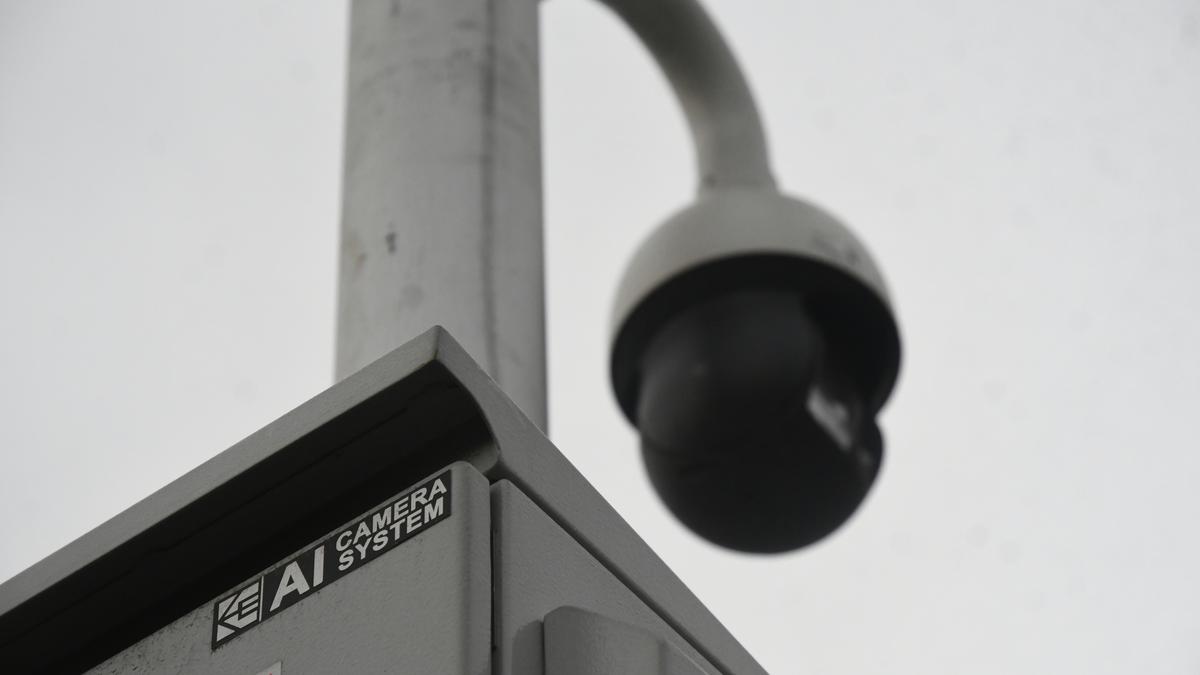
AI-powered speed-trap cameras on expressway slightly brings down fatal accidents: Bengaluru police
The Hindu
The eight Artificial Intelligence (AI)-powered speed trap cameras on international airport road elevated expressway, set up in May this year, seems to have brought down fatalities in accidents on the stretch slightly. However, this road continues to be one of the deadliest stretches in the city and the Bengaluru Traffic Police (BTP) has now partnered with Indian Institute of Technology - Madras (IIT-M) to study the reasons for accidents and make pointed interventions.
The eight Artificial Intelligence (AI)-powered speed trap cameras on international airport road elevated expressway, set up in May this year, seems to have brought down fatalities in accidents on the stretch slightly. However, this road continues to be one of the deadliest stretches in the city and the Bengaluru Traffic Police (BTP) has now partnered with Indian Institute of Technology - Madras (IIT-M) to study the reasons for accidents and make pointed interventions.
Given that overspeeding is rampant on the expressway and the lack of enforcement of the speed limit of 80 kmph, the BTP installed eight speed-trap cameras and have since May booked over 42,000 cases for speed limit violations. Data shows that on an average, the BTP continues to book over 200 cases everyday.
According to the police, as a result, the number of fatal accidents has seen a downward trend. While the elevated expressway reported 76 fatal accidents, of which 66 were ruled as due to overspeeding in 2023, the numbers have dropped to 64 fatal accidents, of which 54 were due to overspeeding in 2024, till date. However, fatal accidents reported on the service road, which doesn’t have speed limit enforcement presently, have shot up from 13 in 2023 to 22 in 2024 till date.
“Though overspeeding still continues to be the prime reason for most fatal accidents on the elevated expressway, the numbers have come down. During the trial run of speed-trap cameras, we used to book over 2,000 cases a day, which has now come down dramatically, indicating that more and more motorists are following the speed limit,” said M.N. Anucheth, Joint Commissioner of Police (Traffic), Bengaluru.
Mr. Anucheth said that their experience over the last seven months enforcing speed limit on the corridor had shown them that there were other factors contributing to fatal accidents on the stretch: low visibility due to fog during the early morning hours and mixing of high speed traffic on the expressway with low speed traffic on the service road.
“We have now identified 11 blackspots which we have requested the National Highways Authority of India to rectify, which is under way. These include Hunasamaranahalli, Jakkur, and Bagalur Cross junctions,” he said, adding they were now focusing on enforcing traffic norms on the service roads as well, to bring down accidents. Meanwhile, IIT-Madras has studied the entire stretch and will soon come up with their recommendations, he said.











